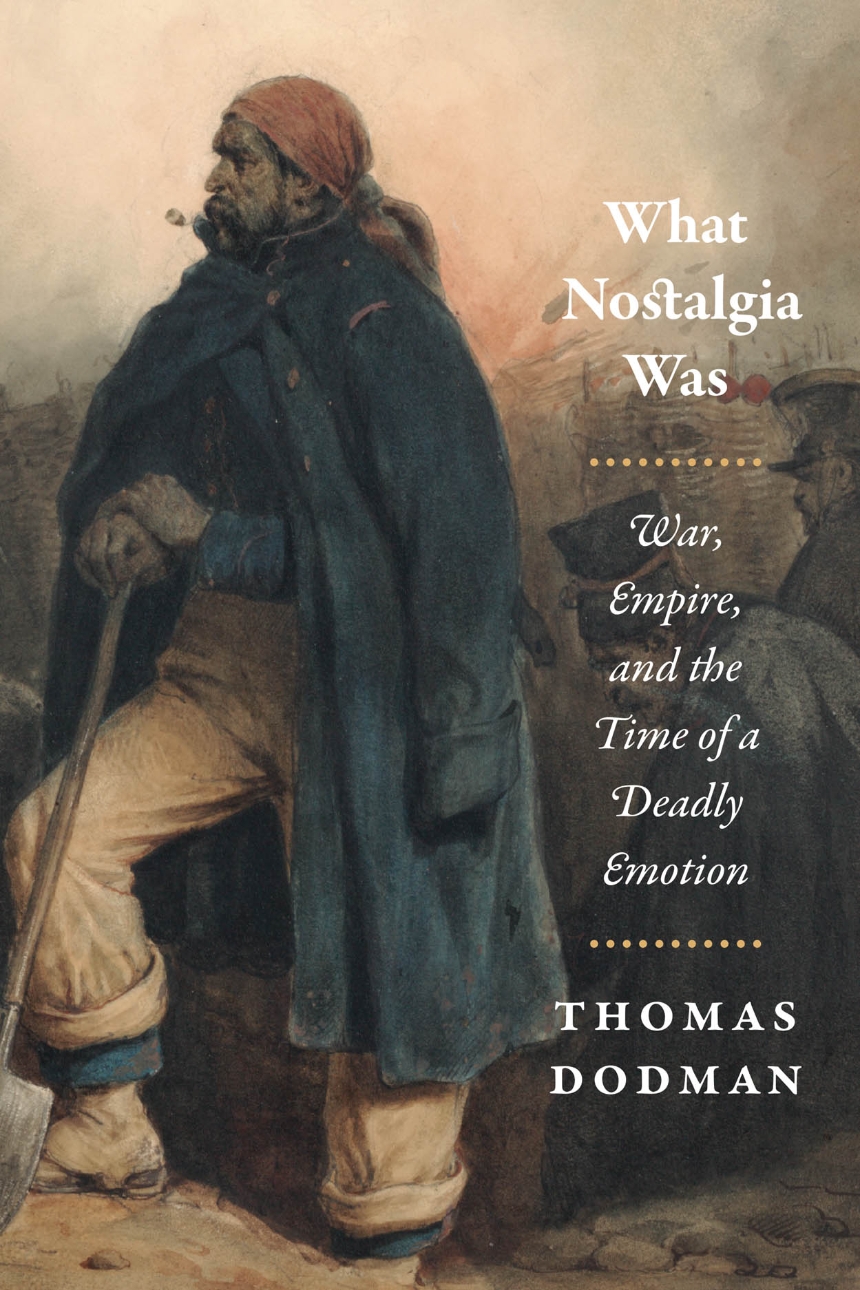What Nostalgia Was
War, Empire, and the Time of a Deadly Emotion
9780226492940
9780226492803
9780226493138
What Nostalgia Was
War, Empire, and the Time of a Deadly Emotion
Nostalgia today is seen as essentially benign, a wistful longing for the past. This wasn't always the case, however: from the late seventeenth century through the end of the nineteenth, nostalgia denoted a form of homesickness so extreme that it could sometimes be deadly.
What Nostalgia Was unearths that history. Thomas Dodman begins his story in Basel, where a nineteen-year-old medical student invented the new diagnosis, modeled on prevailing notions of melancholy. From there, Dodman traces its spread through the European republic of letters and into Napoleon's armies, as French soldiers far from home were diagnosed and treated for the disease. Nostalgia then gradually transformed from a medical term to a more expansive cultural concept, one that encompassed Romantic notions of the aesthetic pleasure of suffering. But the decisive shift toward its contemporary meaning occurred in the colonies, where Frenchmen worried about racial and cultural mixing came to view moderate homesickness as salutary. An afterword reflects on how the history of nostalgia can help us understand the transformations of the modern world, rounding out a surprising, fascinating tour through the history of a durable idea.
What Nostalgia Was unearths that history. Thomas Dodman begins his story in Basel, where a nineteen-year-old medical student invented the new diagnosis, modeled on prevailing notions of melancholy. From there, Dodman traces its spread through the European republic of letters and into Napoleon's armies, as French soldiers far from home were diagnosed and treated for the disease. Nostalgia then gradually transformed from a medical term to a more expansive cultural concept, one that encompassed Romantic notions of the aesthetic pleasure of suffering. But the decisive shift toward its contemporary meaning occurred in the colonies, where Frenchmen worried about racial and cultural mixing came to view moderate homesickness as salutary. An afterword reflects on how the history of nostalgia can help us understand the transformations of the modern world, rounding out a surprising, fascinating tour through the history of a durable idea.
304 pages | 17 halftones | 6 x 9 | © 2017
Chicago Studies in Practices of Meaning
Culture Studies:
History: European History, History of Ideas
Reviews
Table of Contents
Acknowledgments
Introduction: Nostalgia as a Historical Problem
1 • Nostalgia in 1688
2 • The Reasons of a Passion
3 • The Lost Pays of the Patrie
4 • Mothers and Sons in the Time of Napoleonic War
5 • Golden Age
6 • Nostalgia in the Tropics
7 • Ubi bene, ibi patria: Nostalgia Fin de Siècle
Afterword: Nostalgia in History
List of Abbreviations
Notes
Archival Sources
Index
Introduction: Nostalgia as a Historical Problem
1 • Nostalgia in 1688
2 • The Reasons of a Passion
3 • The Lost Pays of the Patrie
4 • Mothers and Sons in the Time of Napoleonic War
5 • Golden Age
6 • Nostalgia in the Tropics
7 • Ubi bene, ibi patria: Nostalgia Fin de Siècle
Afterword: Nostalgia in History
List of Abbreviations
Notes
Archival Sources
Index
Awards
Association for French Cultural Studies: Lawrence Wylie Prize in French Cultural Studies
Honorable Mention
